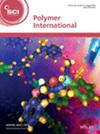利用复合改性技术降低再生热拌沥青混合料的易受潮性
IF 2.9
4区 化学
Q2 POLYMER SCIENCE
引用次数: 0
摘要
苯乙烯-丁二烯-苯乙烯嵌段共聚物(SBS)改性沥青是建造再生热拌沥青混合料(RHMA)的关键材料。然而,这些混合料仍然存在水分稳定性不足的风险。为此,本研究探讨了沥青复合改性技术提高 RHMA 性能的可行性。以 SBS 改性沥青为对照组,采用 SBS、高粘度剂(HVA)和屑橡胶材料(CRM)制备 SBS-HVA 改性沥青和 SBS-CRM 改性沥青,并通过表面自由能测试评估了沥青的粘附性能。然后用每种改性沥青制备了含有 50% 再生沥青路面的 RHMA。使用湿气诱导敏感性、冻融劈裂和浸水马歇尔试验分析了这些混合料的湿气敏感性。结果发现,在干燥条件下,HVA 明显增强了 SBS 改性沥青的粘附性,而 CRM 的影响则微乎其微。与使用 SBS 改性沥青的 RHMA 相比,HVA 和 CRM 添加剂对提高 RHMA 在浸水马歇尔试验中的湿稳定性至关重要。然而,在湿气引起的敏感性和冻融劈裂试验中,CRM 并不能提高 RHMA 的湿气稳定性。根据研究结果,可以建议在 RHMA 中使用 SBS 和 HVA 复合改性沥青,以获得更高的湿稳定性。© 2024 化学工业协会。本文章由计算机程序翻译,如有差异,请以英文原文为准。
Reducing the moisture susceptibility of recycled hot‐mix asphalt mixture with composite modification technology
Styrene–butadiene–styrene block copolymer (SBS)‐modified asphalt is a key material for constructing recycled hot‐mix asphalt mixtures (RHMAs). However, these mixtures still risk insufficient moisture stability. To this end, this study investigates the feasibility of asphalt composite modification technology to enhance RHMA performance. SBS, high‐viscosity agent (HVA) and crumb‐rubber materials (CRM) were used to prepare SBS‐HVA‐ and SBS‐CRM‐modified asphalt, with SBS‐modified asphalt as the control group, and the adhesion properties of the asphalt were evaluated using surface free energy tests. RHMAs with 50% reclaimed asphalt pavement were then prepared with each type of modified asphalt. The moisture susceptibility of these mixtures was analyzed using moisture‐induced sensitivity, freeze–thaw splitting and immersion Marshall tests. It was found that HVA significantly enhanced the adhesion of SBS‐modified asphalt under dry conditions, while CRM had a minimal effect. Compared to RHMA with SBS‐modified asphalt, HVA and CRM additives are crucial for enhancing the moisture stability of RHMA in the immersion Marshall test. However, CRM does not improve the moisture stability of RHMA in the moisture‐induced sensitivity and freezing–thaw splitting tests. From the conducted study, it can be proposed that SBS and HVA composite‐modified asphalt can be utilized in RHMAs to achieve higher moisture stability. © 2024 Society of Chemical Industry.
求助全文
通过发布文献求助,成功后即可免费获取论文全文。
去求助
来源期刊

Polymer International
化学-高分子科学
CiteScore
7.10
自引率
3.10%
发文量
135
审稿时长
4.3 months
期刊介绍:
Polymer International (PI) publishes the most significant advances in macromolecular science and technology. PI especially
welcomes research papers that address applications that fall within the broad headings Energy and Electronics, Biomedical
Studies, and Water, Environment and Sustainability. The Journal’s editors have identified these as the major challenges facing
polymer scientists worldwide.
The Journal also publishes invited Review, Mini-review and Perspective papers that address these challenges and others that
may be of growing or future relevance to polymer scientists and engineers.
 求助内容:
求助内容: 应助结果提醒方式:
应助结果提醒方式:


